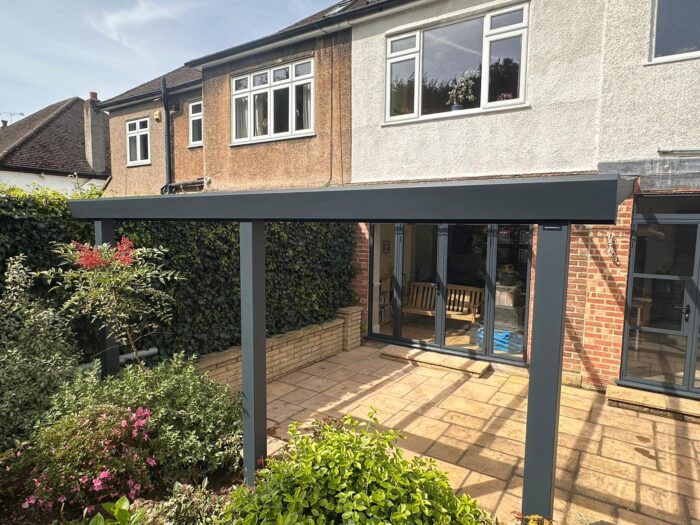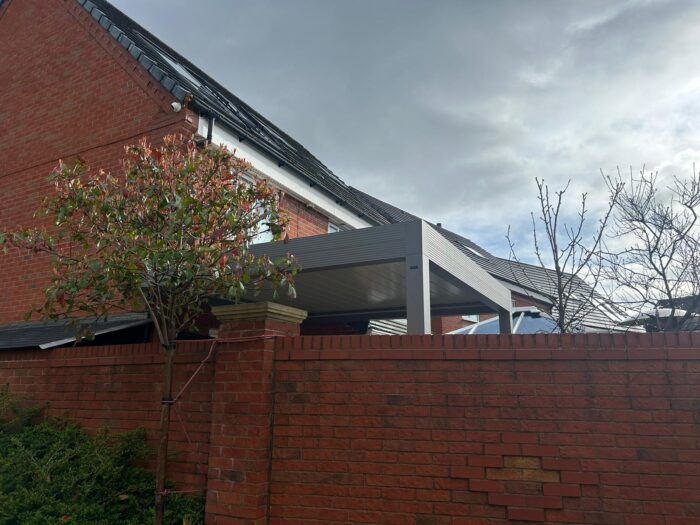
If you’re considering building an extension at the side of your home, there are certain side extension boundary rules that you must comply with.
A side extension can be a great way to increase living space, but it’s not the right solution for everyone – especially if you won’t be able to comply with the various planning regulations.
In this guide, we’ll explain everything you need to know about planning a side extension and offer some alternatives to the traditional extension that don’t require any planning permission at all, such as bespoke garden rooms.

Building an extension with a shared boundary
If your home has a shared boundary with neighbours on both sides, you will usually be able to build an extension under permitted development or with full planning permission up to 50mm from the boundary. In this case, you will often not need to deal with any party wall considerations.
However, if you want to build up to the boundary, a party wall agreement must be obtained. This means your neighbour would have to sign an agreement consenting to the extension being built.
In the event that your neighbour objects to you building an extension up to your shared boundary, you can choose to hire a party wall surveyor who will draw up an agreement and act as an arbitrator if necessary. This process can be costly and time-consuming though – you would have to pay the surveyor costs for both you and your neighbour.
What about building up to a street boundary?
If you share your boundary with the street rather than another private property, you can usually build up to the boundary as long as it lines up with your existing external walls.
If other homes in your area have extensions built like this, then you will likely be able to proceed with permitted development (provided your extension meets the other conditions).
Side extension alternatives to extend your living space
If you’re unable to go ahead with your planned side extension because of the boundary rules or lack of space between your property and the neighbouring properties, there are many alternatives to a traditional extension that you may wish to consider instead.
Outdoor living structures can provide the additional living space you need but don’t require any planning permission in the majority of cases.
Glass rooms
Installing a contemporary glass room at the back of your home is a popular extension alternative that many homeowners opt for. Made from strong glass and durable aluminium, these structures are crafted in collaboration with Europe’s top manufacturers to ensure they stand the test of time just as a conventional extension would.
While the average cost of an extension in the UK is £48,000, glass room prices start at just £14,000, which makes them an affordable alternative. They can be used in the same way that you would use a traditional extension, whether it’s for creating another living space, a family dining area, or an office for working from home.
As well as being a great way to modernise your home, adding a glass room to your property will enhance your home’s curb appeal and increase its value. Each glass room is bespoke and tailored to your home, carefully designed to blend seamlessly with your existing facade.
Garden rooms
Garden rooms are another popular alternative to traditional extensions – however, they differ from glass rooms in that they’re usually built as freestanding structures rather than attached to the house.
Garden rooms blur the boundaries between indoor comfort and outdoor freedom, providing you with a secluded retreat that can be transformed into an office, gym, art studio, and more. These structures are fully insulated to ensure they provide the same level of comfort as you would get with a conventional house extension.

What’s more, the sleek, sophisticated design of these structures means they’re sure to increase the value of your home significantly and will look beautiful in any outdoor space.
Interested in extending your living space with a bespoke outdoor structure that requires no planning permission? Get in touch with the Open Space Concepts team by filling out our online enquiry form or giving us a call directly on 0808 168 0043.
